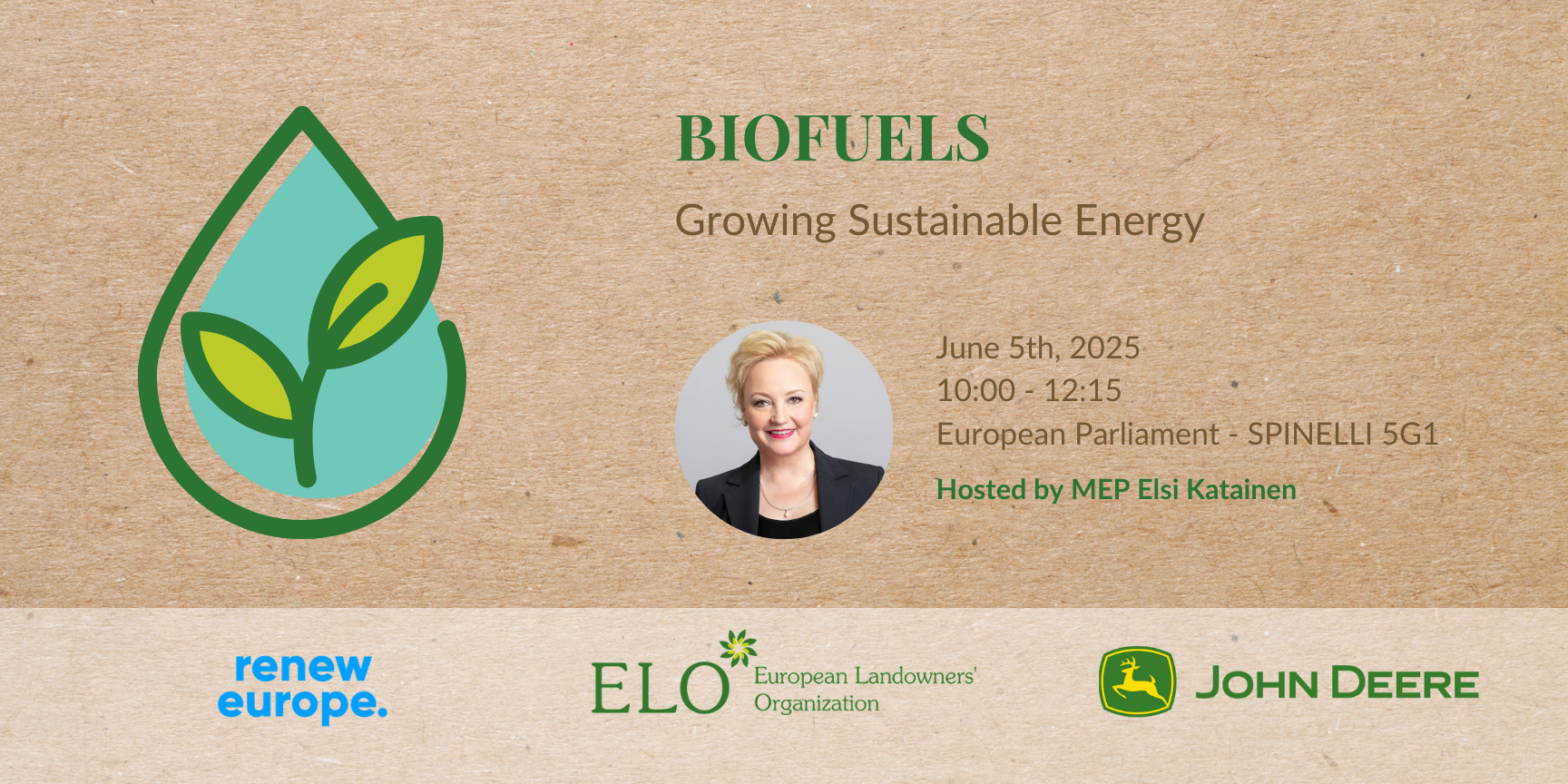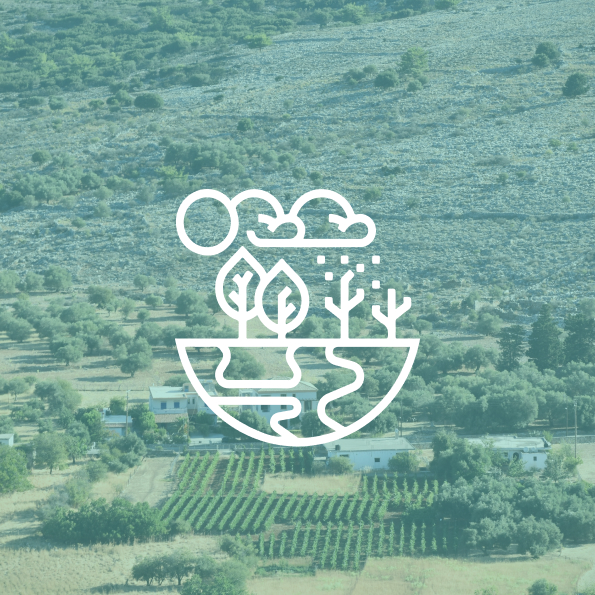Biofuels: Growing Sustainable Energy
From 10:00 to 12:15
European Parliament, Brussels (room: Spinelli 5G1)
As global interest in renewable energy continued to rise, biofuels played an increasingly significant role in the energy market. Within the European Union, biofuel consumption had grown steadily in recent years. However, production had stagnated due to regulatory uncertainties, the removal of tax incentives in some Member States, and increased imports from outside Europe. The question of local production versus imports remained critical, driven by global environmental and strategic autonomy considerations. The industry also faced major challenges, including emissions concerns and land usage implications, which needed to be addressed to ensure long-term sustainability.
At the EU level, biofuels were part of the EU’s renewable energy strategy and considered a key component in decarbonizing transport. Under the Renewable Energy Directive, the EU had set binding targets for renewable energy in transport, while requiring a phasing out of high ILUC-risk biofuels by 2030. As a result, the focus had shifted to second- and third-generation biofuels to meet those targets.
The event “Biofuels: Growing Sustainable Energy,” organized by the European Landowners’ Organization and John Deere, brought together farmers, scientists, industry leaders, and policymakers to explore how biofuels could support the EU’s twin goals of climate neutrality and rural economic development. Hosted by MEP Elsi Katainen, the event addressed the central question: How could the European biofuel sector evolve to support the EU’s energy transition and strategic autonomy, decarbonize the farming sector, and provide additional revenue to farmers, while safeguarding food security? And how far could it realistically evolve to meet those targets?
Through a forward-looking discussion, the event examined whether and how second- and third-generation biofuels could offer a credible, scalable, and fair path forward.

AGENDA
9:30 Welcome tea and coffee
10:00 Welcome address
● MEP Elsi Katainen, Renew Europe
● Deanna Kovar, President, Worldwide Agriculture & Turf Division, John Deere
10:20 Panel discussion: How can the European biofuel sector realistically evolve to support the EU’s energy transition, boost farm income, decarbonise farming, and protect food security?
● Deana Kovar, President, Worldwide Agriculture & Turf Division, John Deere
● Kitti Nyitrai, Director-General for Energy, DG Energy (TBD)
● Gijs Schilthuis, Director of Sustainability, DG Agri
● Teresa Babuscio, Head of Government & Industry Affairs, Corteva
● Farmer representative of Asociación Agraria Jóvenes Agricultores (TBD)
Moderator: Jurgen Tack, Secretary General, ELO
11:20 Deep dive discussion
● Jurgen Tack, Secretary General, ELO
● David Carpintero, Director General, ePURE
11:55 Concluding remarks
● Jurgen Tack, Secretary General, ELO
12:15 Ends
Read the article below, summarizing key takeaways of the event.
Feeding and Fueling Europe: Can Agriculture Power Europe’s Clean Energy Future?
Author: Laura Ticoiu, Policy Officer, ELO
Can Europe grow its own energy without threatening food production or overburdening its farmers? That question took center stage at the “Biofuels: Growing Sustainable Energy” event, hosted by MEP Elsi Katainen on June 5th, 2025 at the European Parliament. Stakeholders from across the agriculture, energy, and policy sectors gathered to discuss how biofuels can support the EU’s energy transition, strengthen rural economies, and protect food sovereignty. The takeaway? With clear rules, cooperation, and innovation, Europe can deliver both food and fuel. And it can do it sustainably.
An Urgent Need for Renewable Fuels
Europe’s energy and agriculture sectors stand at a strategic crossroads. As the EU races to meet its 2050 climate neutrality goals, the demand for renewable transport fuels is set to triple. Biofuels, particularly those derived from crops, residues, and intermediate biomass, are positioned to play a crucial role. But the sector faces major regulatory headwinds.
Fragmented Policy Holds Back Progress
Speakers at the “Biofuels: Growing Sustainable Energy” event voiced mounting frustration over policy inconsistencies. Crop-based biofuels, long a backbone of EU renewable energy strategy, are now increasingly sidelined by the Renewable Energy Directive (RED III), the Energy Taxation Directive, and SAF rules in aviation and maritime sectors. Critics warn that this patchwork of rules could stall investment, undermine farm income, and leave Europe dependent on less sustainable imports.
Taxing the Solution Like the Problem
“We’re treating the solution like the problem,” argued David Carpintero of ePURE. “Crop-based ethanol is taxed like fossil fuel. That makes no sense and it’s killing confidence in the market.”
Innovation Reduces the Carbon Footprint
From the agricultural side, stakeholders urged policymakers to trust European farmers and their commitment to sustainability. Corteva Agriscience and John Deere both emphasized that innovation in seed breeding and precision agriculture has dramatically reduced the carbon footprint of biomass crops over the past decade. These advances, they argue, allow farmers to produce both food and fuel – often using the same land more efficiently.
Diverse Solutions for Agriculture
Deanna Kovar of John Deere underscored the need for diverse solutions: “Electrification has its place, but not in heavy-duty agriculture. We need sustainable liquid fuels too.”
Calls for greater inter-DG cooperation were loud and clear. While DG AGRI and DG ENER maintain there is no “turf war,” stakeholders pushed for holistic impact assessments and more stable, long-term policy frameworks. As Ana Rodriguez Mansilla of ASAJA noted, “If farmers don’t see income security, they’ll walk away from biofuels entirely.”
Food and Fuel: A Shared Future
The event closed with consensus around a core principle: Europe doesn’t need to choose between food or fuel. It needs smart, soil-focused, innovation-driven policy that empowers farmers to deliver both sustainably. In the words of moderator Jurgen Tack: “It’s not food or fuel. It’s food and fuel. And it’s about how we farm.”

